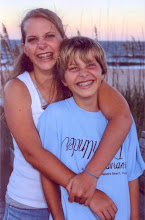William Blake's poems titled "The Chimney Sweeper" share a title, but are very different poems with very different content and meaning. The poem from Blake's
Songs of Innocence shows the loss of innocence of a small chimney sweep. This poem depicts Blake's views of the English society during the eighteenth century because the poem is told in first-person from the perspective of a small chimney sweep who recounts his friend's dream of an Angel that "open'd the coffins & set them all free". All of the boys have lost their childhood and with it, their innocence. Instead of being able to "rise upon clouds, and sport in the wind" the children instead must sweep chimneys and sleep in soot. This poem shows how Blake spoke out against the society and goes along well with his views on social justice which included a strong belief in both liberty and equality.
The other poem also entitled "The Chimney Sweep" was published in Blake's Songs of Experience in 1794. This poem is also told in the first-person, but is told not by a child, but apparently an adult, probably male. This poem also speaks of the injustices in England at the time. However, this time the child's parents are both still living and, assumedly, attend church regularly while their son is "Crying weep, weep, in notes of woe!" The boy also says how he pretends to be happy so his parents do not feel guilty. He has also, like the boy in the other poem, lost his innocence and childhood prematurely and unfairly.
William Blake's feelings of social injustices are very prevalent in both the poems entitled "The Chimney Sweeper" and he uses the first-person perspective to strengthen his views on those injustices.

1 comment:
Rachel,
Good focus on this pair of poems by Blake, and some good observations here about them. I like the way you quote from both of them, and draw connections between the two poems.One suggestion I would make is to get in the habit of providing parenthetical citations when quoting a text; when quoting prose cite the page numbers, and when quoting poetry cite the line numbers.
Do you really think the boys in the first poem have lost their innocence? If so, why is the poem included in the Songs of Innocence section?
Post a Comment